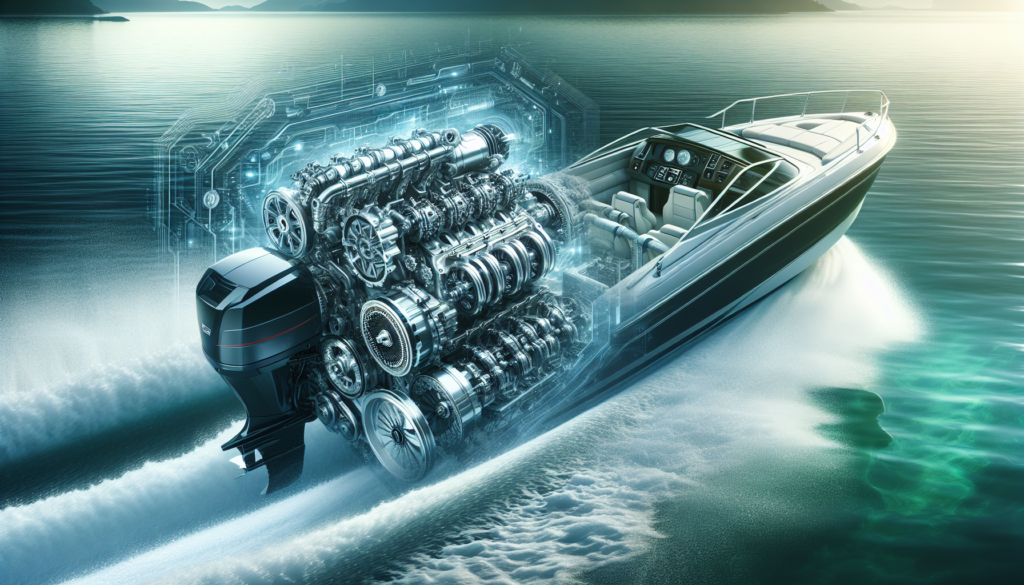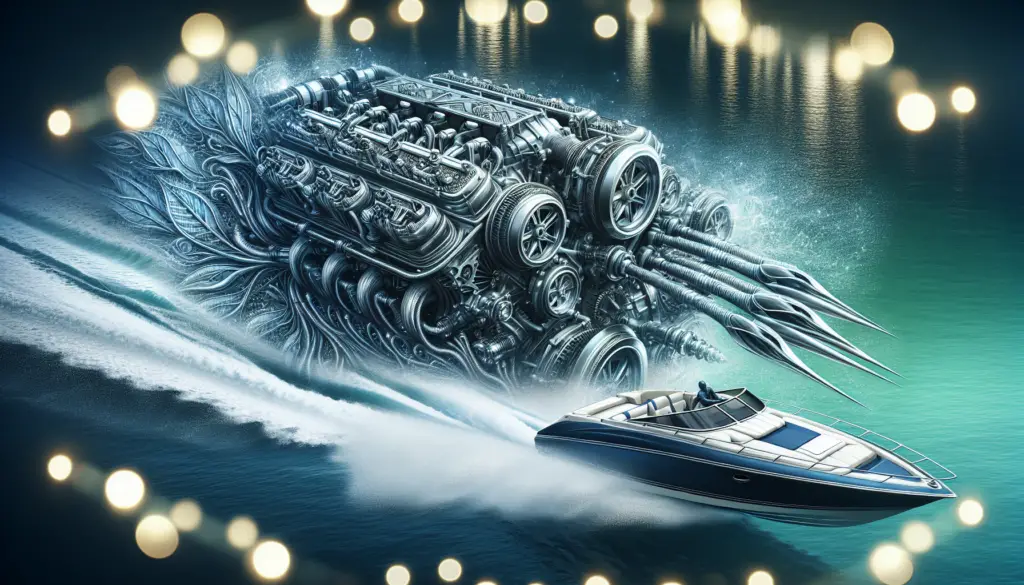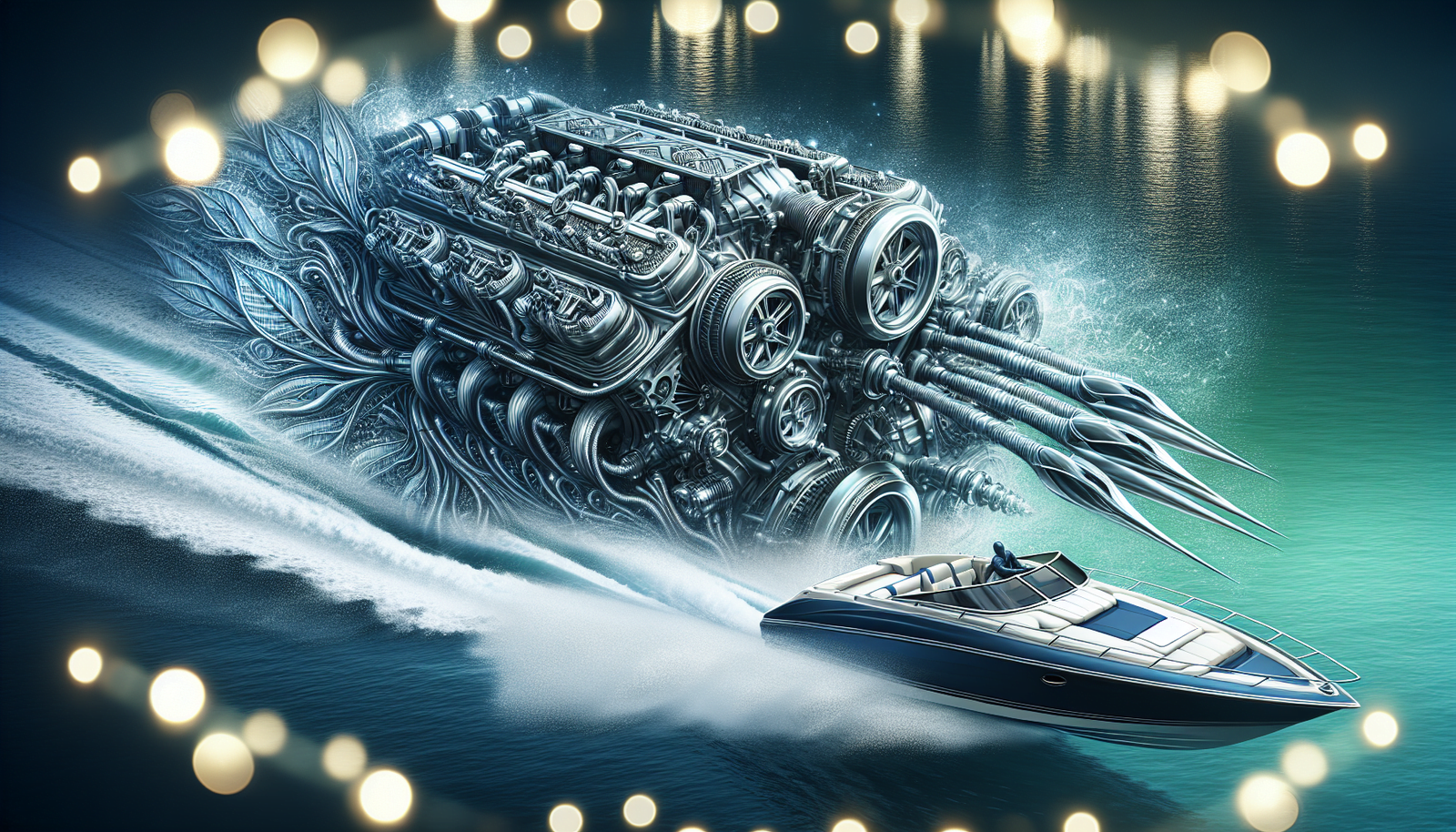Are you looking to give your boat engine a little more punch? “Best Ways To Increase The Horsepower Of Your Boat Engine” is just the resource you need. With practical insights and easy-to-follow guidelines, this comprehensive piece serves as your guide to making your boat’s engine more robust and improving its overall performance. Whether you’re a seasoned mariner or a newbie, tuning up the horsepower of your vessel will make your sailing adventures even more thrilling and satisfying. Brace yourself for an exciting journey of transformation as you discover the best ways to rev up your boat engine’s horsepower.

Understanding Boat Engine Basics
Ahoy, mate! It’s time to delve into the fascinating world of boat engine basics. Consider your engine the beating heart of your vessel, without which you’d be lost at sea (figuratively speaking, of course). Understanding the mechanics is key to increasing your boat’s horsepower and overall performance.
Basic Mechanism of a Boat Engine
All engines, regardless of how different they may seem, operate on the premise of converting fuel into mechanical energy. For boat engines, the process involves a series of controlled explosions set off in a cylinder by a spark plug. The energy produced during this process is what gets the boat moving.
Importance of Horsepower
So, why do we talk about horsepower so much? Well, it’s because it measures the power output of an engine. More horsepower generally equates to higher top speeds and faster acceleration. Keep in mind, though, that your boat’s size and weight play a significant role – the larger it is, the more horsepower you’ll need to achieve the same speeds.
Fuel Consumption vs. Horsepower
With power comes responsibility… for fuel consumption. The greater the horsepower, the more fuel your boat engine will consume. It’s a delicate balance, though. You want enough horsepower to have fun and speed around, but you don’t want to be wasting fuel unnecessarily.
Regular Maintenance
Like with any machinery, regular check-ups go a long way in a boat engine’s performance and lifespan. It ensures all the parts are working as they should and any potential damage can be addressed early on.
Routine Engine Check-up
This simply means popping the hood (hands clean, we hope!) and visually inspecting the engine for any signs of wear and tear. Are there any leaks? Is there corrosion? If you spot anything unusual, it’s time for professional attention.
Cleaning and Oiling
Keep your engine clean and well-oiled for a smooth sail. Dust, debris and saltwater can cause corrosion and adversely affect engine performance. Regular cleaning will minimize these problems. Equally important is regular oiling to keep the engine parts well-lubricated and operating optimally.
Identifying and Repairing Issues before Escalation
A well-maintained engine reduces the chances of major breakdowns that could leave you stranded at sea. Regular check-ups and preventive maintenance help you pick up on any potential issues early on, giving you enough time to address them before they escalate into costly repairs.
Upgrading the Propeller
Your boat engine may be the heart of the boat, but the propeller is what actually gets you moving. Upgrading it can significantly improve your boat’s speed and fuel efficiency.
Benefits of an Upgraded Propeller
A new, high-performance propeller can offer better top speed, improved hole shots, and superior handling. It can also increase your boat’s fuel efficiency and overall performance. Remember, a happy boat steers to calm waters!
Choosing the Right Propeller for Your Boat
When it comes to choosing a propeller, you must keep your boat’s specifications and your boating habits in mind. Are you into water sports or fishing? Each activity requires a specific type of propeller for optimum performance.
Installation Guide for a New Propeller
Installing a new propeller can be a DIY gig if you’re confident with mechanical tasks. You only need basic tools for the job—just remember to follow the manufacturer’s instructions closely and always prioritize safety.

Using High-Quality Fuel
Fuel quality has a significant impact on your engine’s performance. High-quality fuel burns cleaner and more efficiently, reducing the risk of damage.
Benefits of High-Quality Fuel
High-quality gasoline or diesel fuel will provide consistent power to your engine, minimizes build-up in the injectors and combustion chambers, and reducing wear on your engine components.
Understanding Different Types of Fuel
Not all fuels are created equal. Each type—gasoline, diesel, or propane, has its own pros and cons. It’s important to use the type of fuel recommended by your engine manufacturer for optimal performance.
Importance of Fuel Filters
Fuel filters play a crucial role in guarding your engine against impurities present in the fuel. A blocked or worn-out filter can reduce performance and even cause damage to other engine components. Remember, routine filter checks and replacements will keep your engine purring like a kitten.
Updating the Exhaust System
Your boat’s exhaust system is responsible for getting rid of the by-products of combustion safely. An upgraded system ensures better performance, reduced noise, and increased safety.
Understanding Exhaust Systems
The exhaust system consists of pipes that guide waste gases away from the engine. It can be a simple, straight pipe configuration or a complex setup with silencers and filters to reduce noise and emissions.
Benefits of an Updated Exhaust System
Upgraded exhaust systems can improve horsepower, improve fuel efficiency, and quiet your engine, so you can enjoy the soothing sounds of nature around you.
Installation Guide for a New Exhaust System
While it is possible to replace an exhaust system on your own, this task is often better left to professionals. Precise measurements, fitting, and welding might be needed, and an incorrect setup could lead to poor engine performance or potential dangers.
Installing a Supercharger
If you’re looking for a serious horsepower boost, installing a supercharger might be the answer. A supercharger increases the amount of air your engine can inhale, leading to a significant power surge.
What is a Supercharger?
A supercharger is a device that forces more air into the engine’s combustion chamber. This allows the engine to burn more fuel in each stroke, resulting in increased power.
Benefits of a Supercharger
With a supercharger, your boat engine can generate significantly more power without increasing displacement. You’ll experience increased acceleration and top speed—perfect for thrill-seekers and speed enthusiasts.
Installation Guide for a Supercharger
Installing a supercharger is a complex task that requires a good understanding of engines. Unless you’re mechanically savvy, we recommend having a professional take on this task to ensure the best results.
Engine Rebuild
Rebuilding your boat engine can often be a less expensive path to increased horsepower than a complete engine replacement.
Engine Rebuild vs. Engine Replacement
While both options will increase horsepower, a rebuild usually costs less than a new engine and gives you the opportunity to upgrade various components for higher performance.
Steps in an Engine Rebuild
An engine rebuild involves taking your engine apart, inspecting each component, cleaning, repairing or replacing parts as needed, and then reassembling the engine. It’s a labor-intensive process, but it can breathe new life into an older engine.
Expected Horsepower Increase from an Engine Rebuild
Depending on what parts you replace and upgrade, an engine rebuild can provide a substantial increase in horsepower. Plus, a rebuilt engine typically runs smoother and more efficiently.
Improving Air Intake System
Your engine breathes air to survive, and not just any air, but clean and cool air. Improving your air intake system can boost engine performance significantly.
Understanding Air Intake Systems
The air intake system is what delivers air to your engine. It’s typically made up of things like an air filter, mass flow sensor, throttle body, and an intake manifold.
Benefits of a Better Air Intake System
A high-quality air intake system can increase horsepower, acceleration, and torque. It allows your engine to breathe easier, resulting in better fuel efficiency and performance.
Installation Guide for a New Air Intake System
Depending on the type of boat and engine you have, installing a new air intake system could be a reasonable DIY project. But for complex installations, you might want to consider professional help to guarantee proper installation.
Employing ECU Re-mapping
Don’t know what ECU re-mapping is? Don’t panic! It’s just a fancy term for tuning your engine’s computer for better performance.
What is ECU Re-mapping?
ECU stands for ‘Engine Control Unit’. It’s the boat’s computer, controlling various aspects of the engine’s operation. Re-mapping involves changing the default settings to improve performance and fuel efficiency.
Benefits of ECU Re-mapping
ECU re-mapping can unlock hidden horsepower and optimize your engine’s output. It can also improve fuel efficiency—a win-win situation!
How ECU Re-mapping Enhances Horsepower
ECU re-mapping adjusts how your engine uses fuel, alters ignition timing, and modifies other parameters to optimize power and performance of your engine. Think of it as giving your engine a revamp!
Investing in Performance Modifications
Performance modifications are hardware or software changes that can significantly boost your boat’s speed and performance.
Understanding Performance Modifications
Performance modifications can range from simple tweaks like adding a spark plug booster, to more complex changes like upgrading the fuel injection system or intercooling system.
Types of Performance Modifications
Modifications can be mechanical, such as changing the exhaust system or supercharging or can be software-based like ECU remapping. The kind of modification you choose depends on your performance goals and budget.
Expectations from Performance Modifications
Performance modifications can deliver sustainable horsepower and torque gains. But remember, changes should always be made in accordance with your boat’s specifications and handling capabilities—a super-fast boat isn’t any fun if it’s not safe!
Well, now you’re in the know about the best ways to increase the horsepower of your boat engine. Remember, improving your boat’s engine isn’t just about boosting speed—it’s also about making sure your boat is performing at its best and is safe for all of your aquatic adventures. Ready to set sail?

